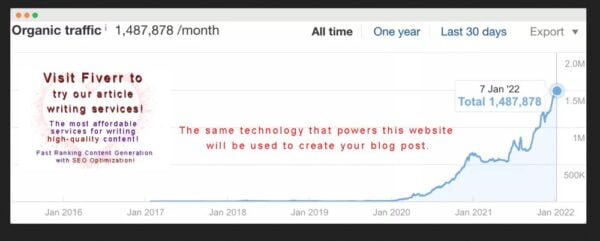B2B Content Writing: How to Engage and Persuade Professional Audiences
Content writing is a powerful tool in the world of business-to-business (B2B) marketing. It’s the art of creating written material that businesses use to communicate with other businesses. Unlike business-to-consumer (B2C) content, which often focuses on emotional appeal, B2B content writing is more about demonstrating value and expertise to a professional audience.
In this article, we’ll explore what B2B content writing is, its importance, and how to excel at it.

Table of Contents
What is B2B Content Writing?
![]()
B2B content writing involves crafting content specifically for businesses that sell products or services to other businesses. This type of content is designed to inform, educate, and persuade professionals who are making decisions on behalf of their companies. The goal is to provide these decision-makers with the information they need to see the value in a product or service and choose one business over another.
The Importance of B2B Content Writing
![]()
Content writing in the B2B sector is crucial because it helps companies:
- Establish authority and expertise in their industry.
- Build and nurture relationships with potential and existing clients.
- Improve search engine rankings and online visibility.
- Generate leads and drive conversions.
- Educate their audience about products, services, and industry trends.
Effective B2B content writing can position a company as a thought leader, which is essential for standing out in a crowded marketplace.
B2B Content Writing Services
![]()
Many businesses turn to professional B2B content writing services to ensure their content is high-quality, engaging, and tailored to their target audience. These services can include writing blog posts, white papers, case studies, email newsletters, and more. By outsourcing content creation to experts, businesses can save time and focus on their core operations while still benefiting from the power of content marketing.
B2B SaaS Content Writing
![]()
Software as a Service (SaaS) companies in the B2B space face unique challenges when it comes to content writing. B2B SaaS content writing must not only explain complex software features but also convey the benefits and ROI of using the software. This requires a deep understanding of the technology, the industry, and the customer’s pain points.
B2B Content Writing Examples
![]()
Let’s look at some examples of B2B content writing:
- Blog Posts: These are often used to address common questions or concerns in an industry, offer solutions, and share insights.
- White Papers: These are in-depth reports on specific topics that showcase a company’s knowledge and thought leadership.
- Case Studies: Real-life examples of how a company’s product or service has helped another business succeed.
- Email Newsletters: Regular updates that keep subscribers informed about industry news, company updates, and valuable content.
Each type of content serves a different purpose but is equally important in a comprehensive B2B content strategy.
Writing B2B Content: Best Practices
![]()
When it comes to writing B2B content, there are several best practices to keep in mind:
- Understand Your Audience: Know who you’re writing for and what their needs, challenges, and interests are.
- Focus on Value: Highlight the benefits and ROI of your product or service, rather than just its features.
- Be Clear and Concise: Use plain English and avoid jargon that might confuse readers who aren’t experts in your field.
- Use Data and Research: Support your points with statistics, case studies, and credible sources to build trust.
- Optimize for SEO: Include relevant keywords to improve your content’s visibility in search engine results.
- Include Calls to Action: Encourage readers to take the next step, whether it’s downloading a white paper, signing up for a webinar, or contacting sales.
By following these practices, you can create content that resonates with your B2B audience and drives results for your business.
Case Studies and Success Stories
![]()
Case studies are a powerful form of B2B content writing. They tell the story of how a business solved a problem or achieved success using a product or service. These stories are effective because they provide concrete examples of value and can help potential customers envision similar success for their own businesses.
For instance, a SaaS company might share a case study about how their software helped a client streamline their operations, resulting in a significant reduction in costs and an increase in productivity. Such a story not only demonstrates the software’s capabilities but also provides social proof of its effectiveness.
Statistics and Research in B2B Content Writing
![]()
Incorporating statistics and research into your B2B content can greatly enhance its credibility. For example, a B2B marketing agency might publish a report stating that businesses using content marketing see, on average, a 30% higher growth rate than those that don’t. Such data can be compelling to a business considering content marketing services.
When using statistics, it’s important to cite reputable sources and ensure the data is up-to-date. This not only strengthens your argument but also positions your company as a reliable source of information.
Conclusion: The Power of B2B Content Writing
![]()
B2B content writing is an essential component of any successful B2B marketing strategy. It helps businesses communicate their value proposition, establish authority, and engage with other businesses in a meaningful way. By understanding your audience, focusing on value, and using best practices for content creation, you can craft compelling content that drives results.
Whether you’re a SaaS provider, a marketing agency, or any other type of B2B company, investing in high-quality content writing can set you apart from the competition and help you build lasting relationships with your clients. Remember, in the world of B2B, content isn’t just king—it’s the key to unlocking business growth and success.


